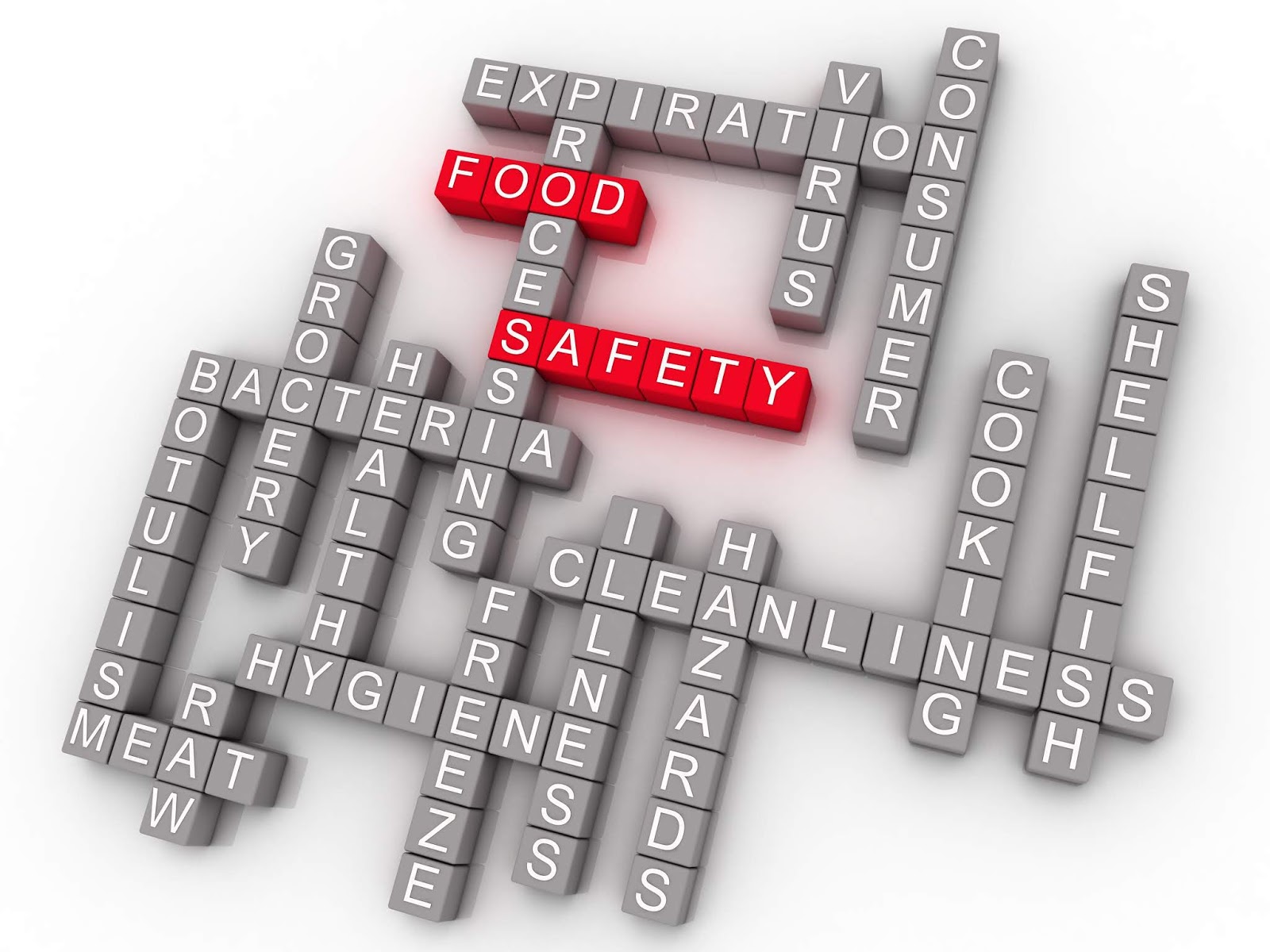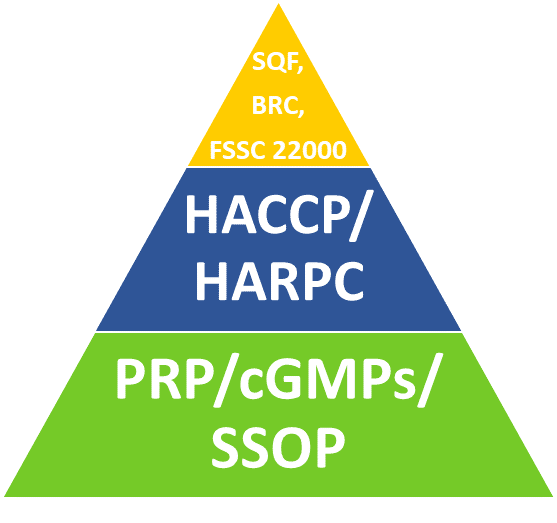6/22/2018
BY: JOHN SPILLSON
 In 2011 President Obama signed the Food Safety Modernization Act (FSMA) into law, bringing about the most sweeping changes the food safety industry has seen in 70 years. This introduced the Food Safety Plan (FSP), which is the primary document that guides your Preventive Controls Food Safety System. While the ‘why’ of the FSMA has been publicized quite extensively, not as much has been explained about the ‘who,’ ‘what,’ ‘how’ and ‘when.’
In 2011 President Obama signed the Food Safety Modernization Act (FSMA) into law, bringing about the most sweeping changes the food safety industry has seen in 70 years. This introduced the Food Safety Plan (FSP), which is the primary document that guides your Preventive Controls Food Safety System. While the ‘why’ of the FSMA has been publicized quite extensively, not as much has been explained about the ‘who,’ ‘what,’ ‘how’ and ‘when.’
To answer these questions, we must first start with ‘what’ it is in order to understand ‘who’ should be involved and ‘how’ to comply, as well as ‘why’ you’d want to. Previous food safety standards were mostly reactionary, while the new movement puts its focus on prevention through risk-based analysis. The focus of the new FSP lies in the prevention of hazards throughout the process. The FDA is granted more authority to offer guidance and assess fines and fees, as well as order recalls (which had previously been left to individual companies). Food processors also are now tasked with incurring more inspections, increasing record keeping and monitoring supply chains.
The crux of the FSP can be summed up in two words: preventive controls. Preventive controls are specific to a facility and product, taking into consideration the severity of a hazard as well as its likeliness of occurring. The process of preventive controls begins with understanding the food safety pyramid (not to be confused with the food group pyramid). As seen in the figure below, the foundation of every FSP should be well-written and effective Prerequisite Programs (PRPs), current Good Manufacturing Practices (cGMPs) and Sanitation Standard Operating Procedures (SSOPs). Quite often preventive controls will exist in these foundational programs.

HACCP and HARPC plans, the next level on the pyramid, rely on solid PRPs, cGMPs and SSOPs in order to be effective. Only after these robust standards are in place can you consider a Global Food Safety Initiative-recognized scheme such as SQF, BRC or FSSC 22000. Having a solid understanding of the four categories where hazards may lie – physical, chemical, biological and radiological – helps develop the game plan for preventing these hazards from occurring.
The three big takeaways here are to identify, prevent and document. Identify the potential hazards or risks by considering their severity as well as likeliness to occur. Prevent and/or control the identified hazards through a proven or documented successful means. And finally, document, document, document. There must be a record of how an identified risk is controlled. If it’s not written down it didn’t happen. Recall plans also are an integral part of an FSP. Names, numbers and contact information must be readily available in order to contact the Reportable Food Registry, regulatory officials, impacted customers and even the public. It is best for food processors to think of themselves as food safety companies that happen to produce food.
Now that we know what it is and how to comply, we should explore who must be involved, and when they need to be compliant. New to the food safety acronym world are QI and PCQI. QI, or Qualified Individual, is the name given to the person in the facility who performs a task. It doesn’t matter what the task is, as long as the person doing it has been adequately trained in performing that particular part of the process.
Second, and the true manager of the FSP, is the Preventive Controls Qualified Individual, or PCQI. The PCQI holds the most important role in the FSP: to develop, write and maintain the FSP. They must verify and validate the preventive controls as well as establish corrections or corrective actions when there has been a deviation from the FSP. This individual also needs to reevaluate the FSP every three years (or after any recall or significant change in a process). In order to become the company’s PCQI, an individual must either have adequate knowledge or job experience to develop and apply a food safety system, or complete a PCQI certification course.
In terms of who this applies to and when you must comply: Unless your company is so small and have been given an exemption, you’ll need to have an FSP, complete with a recall plan in order to sell your packaged food in a retail setting. Food processors with sales above $1M and more than 500 employees were required to comply by September of 2016, while small processors with fewer than 500 employees had to comply by September of 2017. Very small processors, those with sales below $1M, must comply by September of 2018.
FSMA brought forth many challenges and new ways of thinking for food processors, bringing benefits as well for safely producing food products. The old days of being reactionary now have been replaced with progressive, forward-thinking methodologies that aim to eliminate or control known hazards.
At The Center, we often work on-site with food processors to improve their efficiencies and make lasting changes. Additionally, we offer a one-day Fundamentals of Food Processing course that touches on FSMA/PCQI requirements and responsibilities, as well as the only recommended course to certify PCQIs. To learn more about these courses, or to register for an upcoming class, contact inquiry@the-center.org or call 888.414.6682.
MEET OUR EXPERT

John Spillson, Food Business Development Manager
John works to develop and expand the food program at The Center. His experience operating his own business has given him knowledge in production, sales, food safety, marketing, warehousing and logistics. John comes from a long line of entrepreneurs, following both parents and grandparents in operating their own family food businesses. Prior to joining The Center, John owned and operated his own food processing company for more than 20 years. He loves helping food processors almost as much as he loves food itself.
Since 1991, the Michigan Manufacturing Technology Center has assisted Michigan’s small and medium-sized businesses to successfully compete and grow. Through personalized services designed to meet the needs of clients, we develop more effective business leaders, drive product and process innovation, promote company-wide operational excellence and foster creative strategies for business growth and greater profitability. Find us at www.the-center.org.
Categories: Food Processing,
Quality Management